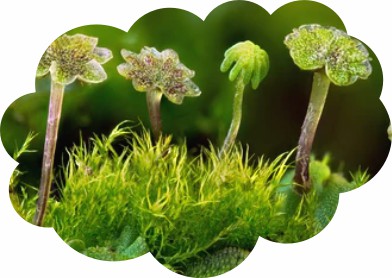Bryophytes are a group of small plants that grow in moist environments and occupy an important place on land. Bryophytes play an essential role in the ecosystem and are also widely used in biotechnology. The study of genetic transformation in bryophytes has important scientific and practical application values and has gained more and more attention from researchers. In-depth research on bryophyte transformation can provide new ideas and ways for the innovation and development of biotechnology.
Lifeasible is an industry leader in plant research. Based on our advanced technology platform and years of experience in bryophyte genetic transformation services, we aim to provide comprehensive solutions for bryophyte transformation. In bryophyte transformation research, the screening and identifying bryophyte transformation-positive plants has an essential impact on bryophyte biology research.

Screening methods for bryophyte-transformed positive plants usually involve introducing an exogenous gene into the bryophyte, followed by a series of experimental steps to screen for successfully transformed positive plants. To ensure that accurate positive transformants are obtained, we offer a variety of effective solutions for the screening and characterizing bryophyte transformants.
Evaluating the phenotypic changes of positively transformed bryophytes compared to wild-type bryophytes is of great importance. We generally do this by assessing any observable differences in growth rate, morphology, and response to specific environmental conditions or treatments. We utilize phenotypic assessment to screen transformed plants to improve the accuracy of our experimental results by strictly controlling the experimental conditions and using appropriate positive and negative controls. In addition, multiple independent experiments can be performed to verify the reproducibility of the results. Multiple screening methods will also be used to increase the confidence of the results to ensure that reliable positive plants are obtained.
We extracted DNA from the transformed bryophyte plants and wild-type bryophyte, used the transformed bryophyte plant DNA, wild-type bryophyte DNA, and the constructed vector plasmid as templates, and then amplified them by PCR using the primers (hpt-F and hpt-R) that were used to screen for Hygromycin gene. Because the bryophyte does not have the Hygromycin gene sequence, the strain that can amplify the bands and has the correct size of the bands is the positive strain for successful transformation.
Genetic transformation of bryophytes is an effective method to obtain improved varieties and functional identification of new genes, but the copy number of exogenous genes in bryophyte-transformed plants often affects the expression level of target genes and genetic stability, so the copy number of exogenous genes in the transformed plants was detected to screen out transgenic bryophytes with fewer copies or single copies for further bryophyte research. The main method for copy number detection in transgenic bryophyte plants is Southern hybridization, but this method is laborious, requires a lot of DNA material, is time-consuming, and often requires potentially dangerous drugs such as radioisotopes. We provide a high-throughput, rapid, and more sensitive quantitative PCR assay for the screening and identification of positively transformed plants in bryophyte, which plays a vital role in helping researchers to screen and identify positively transformed plants.

Screening and characterizing bryophyte transformants are essential for advancing scientific research and applications. Lifeasible's solutions for characterization and screening of bryophyte transformants help researchers understand gene function and biological processes and support tasks such as solving environmental problems, producing biotechnology products, and improving plant varieties. If you are interested in us, please feel free to contact us.
Lifeasible has established a one-stop service platform for plants. In addition to obtaining customized solutions for plant genetic engineering, customers can also conduct follow-up analysis and research on plants through our analysis platform. The analytical services we provide include but are not limited to the following:
Get Latest Lifeasible News and Updates Directly to Your Inbox
Mechanisms Regulating Plant Chloroplast Biogenesis
April 15, 2025